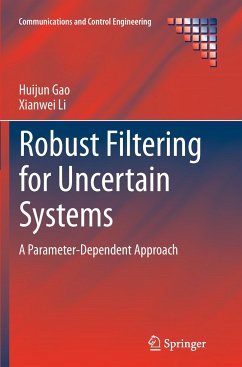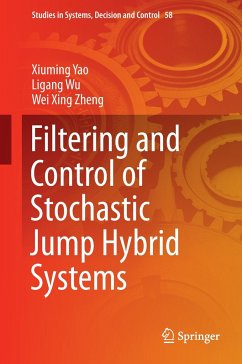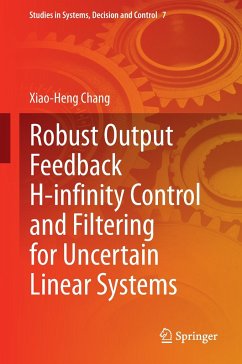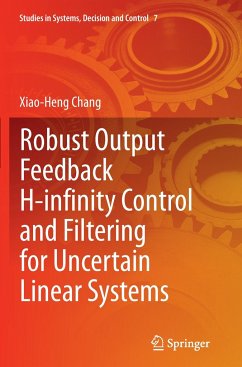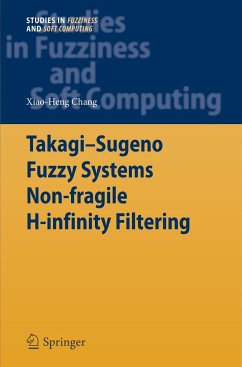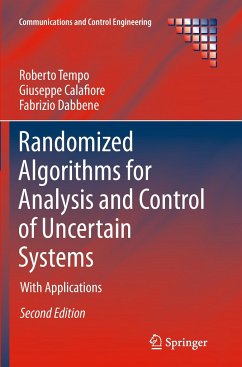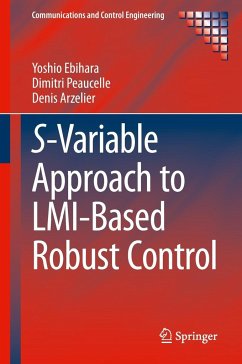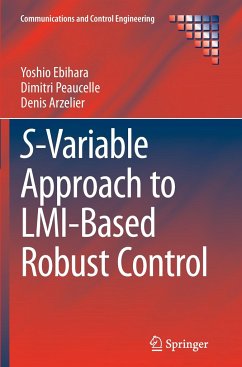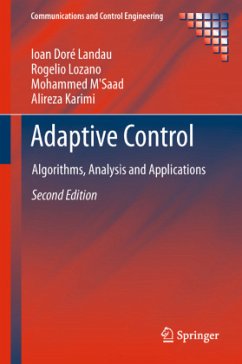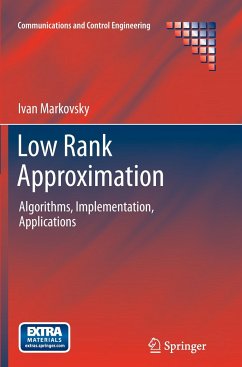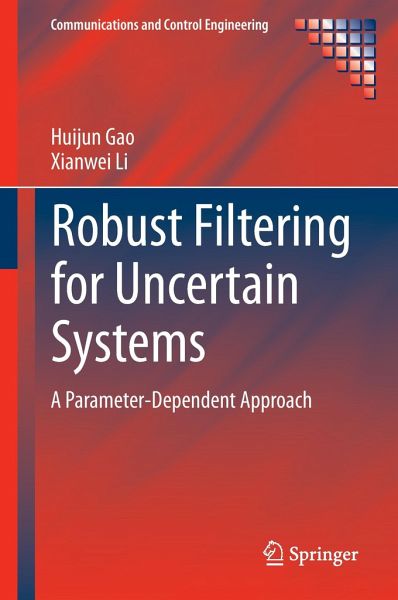
Robust Filtering for Uncertain Systems
A Parameter-Dependent Approach
Versandkostenfrei!
Versandfertig in 6-10 Tagen
76,99 €
inkl. MwSt.
Weitere Ausgaben:

PAYBACK Punkte
38 °P sammeln!
This monograph provides the reader with a systematic treatment of robust filter design, a key issue in systems, control and signal processing, because of the fact that the inevitable presence of uncertainty in system and signal models often degrades the filtering performance and may even cause instability. The methods described are therefore not subject to the rigorous assumptions of traditional Kalman filtering. The monograph is concerned with robust filtering for various dynamical systems with parametric uncertainties and focuses on parameter-dependent approaches to filter design. Classical ...
This monograph provides the reader with a systematic treatment of robust filter design, a key issue in systems, control and signal processing, because of the fact that the inevitable presence of uncertainty in system and signal models often degrades the filtering performance and may even cause instability. The methods described are therefore not subject to the rigorous assumptions of traditional Kalman filtering. The monograph is concerned with robust filtering for various dynamical systems with parametric uncertainties and focuses on parameter-dependent approaches to filter design. Classical filtering schemes, like H2 filtering and H¥ filtering, are addressed and emerging issues such as robust filtering with constraints on communication channels and signal frequency characteristics are discussed. The text features:
· design approaches to robust filters arranged according to varying complexity level and emphasizing robust filtering inthe parameter-dependent framework for the first time;
· guidance on the use of special realistic phenomena or factors to describe problems more accurately and to improve filtering performance;
· a unified linear matrix inequality formulation of design approaches for easy and effective filter design;
· demonstration of the techniques of matrix decoupling technique, the generalized Kalman-Yakubovich-Popov lemma, the free weighting matrix technique and the delay modelling approach, in robust filtering;
· numerous easy-to-follow simulation examples, graphical and tabular illustrations to help the reader understand the filter design approaches developed; and
· an account of emerging issues on robust filtering for research to inspire future investigation.
Robust Filtering for Uncertain Systems will be of interest to academic researchers specializing in linear, robust and optimal control and estimation and to practitioners working in tracking and network control or signal filtering, detection and estimation. Graduate students learning control and systems theory, signal processing or applied mathematics will also find the book to be a valuable resource.
· design approaches to robust filters arranged according to varying complexity level and emphasizing robust filtering inthe parameter-dependent framework for the first time;
· guidance on the use of special realistic phenomena or factors to describe problems more accurately and to improve filtering performance;
· a unified linear matrix inequality formulation of design approaches for easy and effective filter design;
· demonstration of the techniques of matrix decoupling technique, the generalized Kalman-Yakubovich-Popov lemma, the free weighting matrix technique and the delay modelling approach, in robust filtering;
· numerous easy-to-follow simulation examples, graphical and tabular illustrations to help the reader understand the filter design approaches developed; and
· an account of emerging issues on robust filtering for research to inspire future investigation.
Robust Filtering for Uncertain Systems will be of interest to academic researchers specializing in linear, robust and optimal control and estimation and to practitioners working in tracking and network control or signal filtering, detection and estimation. Graduate students learning control and systems theory, signal processing or applied mathematics will also find the book to be a valuable resource.





